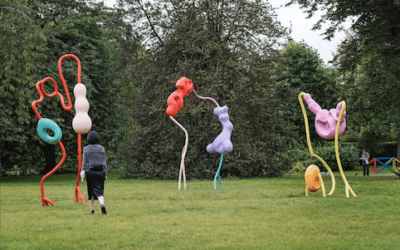[dropcap style=”font-size:100px; color:#992211;”]Y[/dropcap]eah, yeah, relying on ‘gut instinct’ for monumental decisions has its merits, and also its pitfalls. The report below takes a fine empirical look at the issue.
More important, and related to the news piece in only the most cursory of linguistic ways, is the question – how are you treating your gut microbiota?
As the science and nutrition establishment slowly wakes up to the growing body of anecdotal evidence (and smaller body of clinical research) regarding the role of gut microbiology in human physical and mental wellbeing, we’ll keep you well posted on Trebuchet.
In the interim, steer clear of emulsifiers and get as much fibrous vegetation into your system as you can manage. You’re eating for two (trillion).
Is empathy the result of gut intuition or careful reasoning? Research published by the American Psychological Association suggests that, contrary to popular belief, the latter may be more the case.
“Cultivating successful personal and professional relationships requires the ability to accurately infer the feelings of others – that is, to be empathically accurate. Some are better at this than others, a difference that may be explained in part by mode of thought,” said Jennifer Lerner, PhD, of Harvard University, a co-author of the study published in the Journal of Personality and Social Psychology. “Until now, however, little was known about which mode of thought, intuitive versus systematic, offers better accuracy in perceiving another’s feelings.”
Individuals process information and make decisions in different ways, according to Lerner. Some choose to follow their instincts and go with what feels right to them (i.e., intuitive) while others plan carefully and analyze the information available to them before deciding (i.e., systematic).
Lerner and her co-author, Christine Ma-Kellams, PhD, of the University of La Verne, conducted four studies, involving over 900 participants, to examine the relationship between the two modes of thought and empathetic accuracy. The first determined that most people believe that intuition is a better guide than systematic thinking to accurately infer another’s thoughts and feelings. The other three studies found that the opposite is true.
“Importantly, three out of the four studies presented here relied on actual professionals and managers. This sample represents a highly relevant group for which to test empathic accuracy, given the importance of empathic accuracy for a host of workplace outcomes, including negotiations, worker satisfaction and workplace performance,” said Ma-Kellams.
These findings are important because they show that commonly held assumptions about what makes someone a good emotional mind reader may be wrong, said Lerner. “The many settings in which the value of intuition is extolled — for example a job interview — may need to be reassessed with a more nuanced perspective.”
Source: Eurekalert/American Psychological Association
Image: Pixabay/RyanMcGuire

Some of the news that we find inspiring, diverting, wrong or so very right.




















